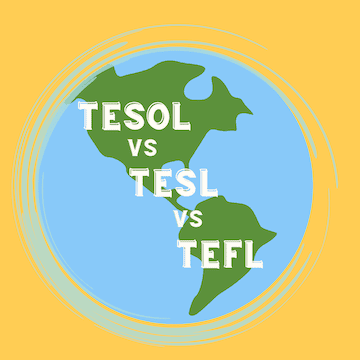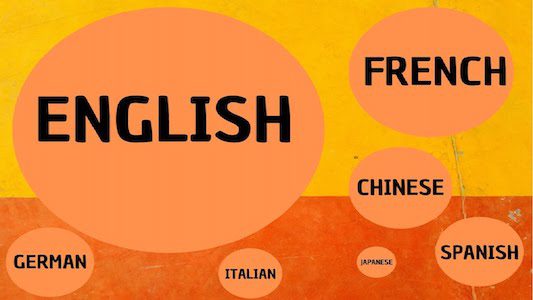Teaching English to Speakers of Other Languages
Teaching English to ELLs is an exciting and rewarding career. Whether tutoring private students abroad or supporting immigrants at home, you enjoy rich opportunities for cultural exchange, professional growth, and personal fulfillment as a TESOL professional. You learn from your students as much as they learn from you!
TESOL vs TEFL vs. TESL certificate: Which is best to teach English to English Language Learners (ELLs)?
To get the best start to your ESOL career, it helps to join a TEFL, TESL or TESOL certificate program to gain essential skills and qualifications. Your best option is a TEFL, TESL or TESOL program–which is better?

Traditionally, there was a difference between TEFL and TESL depending either on a learner’s location or the content of a course. TESOL encompasses both TEFL and TESL, so in a TESOL Certificate program you are learning best practices used in both TESL and TEFL regardless of location or content.
The best TESOL courses offer opportunities to practice teaching classes to ESL students in a supervised practice teaching component.
In case you’re interested in sorting out the alphabet soup of acronyms:
- TESOL stands for Teaching English to Speakers of Other Languages.
- TEFL stands for Teaching English as a Foreign Language.
- TESL stands for Teaching English as a Second Language.
Putting aside the jargon, a TESOL certificate is all you need to get started teaching in person or online.
What is the difference between a TESOL certificate and a TESOL certification?
TESOL certification refers to the extensive certification and licensing requirements for public school teachers. In other words, TESOL certification is a totally different process that state Departments of Education in the U.S. grant after students complete state determined requirements to teach in public schools.
A TESOL certificate refers to a 180-hour teacher training program that qualifies you to teach ELLs at private language schools and community based organizations. While a TESOL certificate does not certify you to teach in a public school setting, it does qualify you to teach public and private institutions in conjunction with other degrees based on their needs.
ILI’s TESOL Certificate course is in conjunction with the School for International Training (SIT), whose TESOL certification process is recognized around the world as one of the highest quality courses for teaching ESOL. Our SIT TESOL program meets all SIT requirements for awarding certificates.
Are you considering pursuing graduate studies in Teaching English to Speakers of Other Languages (TESOL) or a related field after earning your certificate? Because SIT is an accredited university, there is the option for learners to receive five graduate credits toward further study at SIT’s Graduate Institute. And TESOL Certificate graduates can also receive a tuition reduction. SIT’s Graduate Institute offers a $2,000 tuition discount for students who pursue an MA in TESOL at SIT after completing the certificate program.
Can I get a TESOL certificate without a degree?
The only prerequisite to enter a TESOL certificate course is a high school diploma and native-level English proficiency. You don’t need a college degree.
While employers may prefer candidates with a degree and one year of teaching experience, the main thing they look for is a TESOL certificate from an accredited institution.
What jobs can I get with a TESOL vs TEFL certificate?
Basically, jobs at private schools and public schools when there is a need.
There’s no single license, degree, or governing body that qualifies you to teach English in every country, field, or program. Job requirements depend on the organization and country.

If your heart is set on a particular country or school, you may want to research the particular prerequisites regarding TEFL vs. TESOL, though it’s unlikely to make a difference. There’s a chance your dream job prefers candidates with a BA or a couple years prior teaching experience. TESOL-certified teachers sometimes have a leg up in the US, UK, Canada, and Australia. Conversely, TEFL certification carries more weight in some locations abroad, depending on the institution.
That said, the minimum job requirements for most private ESL schools are having a TESOL certificate and being a native English speaker. While an advanced degree is usually not necessary, some countries privilege work visas to teachers with a degree.
Overall, a TESOL certificate program is your best one stop shopping solution to teach ESL online, abroad, or in the US. Our English Programs at ILI emphasize TESOL pedagogy because it’s the key to productive language learning.
Are TESOL teachers in demand?
Not just millions of people around the world are learning English. The number of English language learners exceeds a billion!

That adds up to a lot of classrooms on campuses and online that need TEFL or TESOL-certified instructors.
There are tons of opportunities to teach online business English, especially to students in South Korea, Taiwan, Vietnam, and Japan, where great emphasis is placed on English language education.
Thanks to the boom in online English programs, you can reach English learners across time zones from from Japan to Senegal to Chile with no commute.
Since English allows people from Vietnam, Australia, Mexico, and Germany to conduct business, international companies seek candidates with high TOEIC (Test of English for International Communication) scores, creating a thriving market for instructors with a TESOL or TEFL certificate.
Immigration also means that the US, Canada, and the UK will continue needing ESL instructors. The 2018 US Census Reports that over 20% of the population speaks a language other than English at home. Among them, about 8% self-report that they speak English “less than very well.”
The status of English as the global language of communication isn’t going to change soon. As long as English remains the consensus lingua franca, TESOL teachers will be in demand for both in-person and online courses.
Related articles about language learning
Bringing decades of passion as educators, we at ILI Massachusetts believe in open access to education for language learners around the world, regardless of race, religion, gender identification, physical and mental abilities, economic standing, documentation status, and educational levels.
- How Long Does it Take to Learn a Language?
- Great ways to learn Spanish online and why it’s important.
- Top 7 reasons to speak and learn Spanish fluently in the USA.
- The Rejection of Perfection in Learning a Language
- World of jazz: Interview with Andy Jaffe, a Portuguese and Chinese language student living in the USA.
- Kathy Learning Spanish (again): Interview with a Spanish language student living in the USA.
- How Alice Flexes her Brain Through French film: Interview with a French and Spanish language student living in the USA.
- Charles the language person: Interview with an Italian and German language student living in the USA.
- Takehiro Rises: Interview with an ILI English student from Japan who built a career in the USA.
- ILI’s Best Practices for Teaching Online with Zoom
- Teaching English Through A Photographic Lens
- Online TESOL Certification courses: Are they valid?
- Is TESOL worth it?: The extraordinary value of effective teacher training
- What To Expect From an Online TESOL Course at ILI
- How should I prepare for the TESOL certificate program?: Top 6 tips